Pictured above is the GHRUP Class of 2025 with supporting Zoryan officials.
Article
Empowering Change Through Education: The Zoryan Institute Contributes to Canada Being a Destination for Human Rights Education
18 Aug 2025
Article
18 Aug 2025
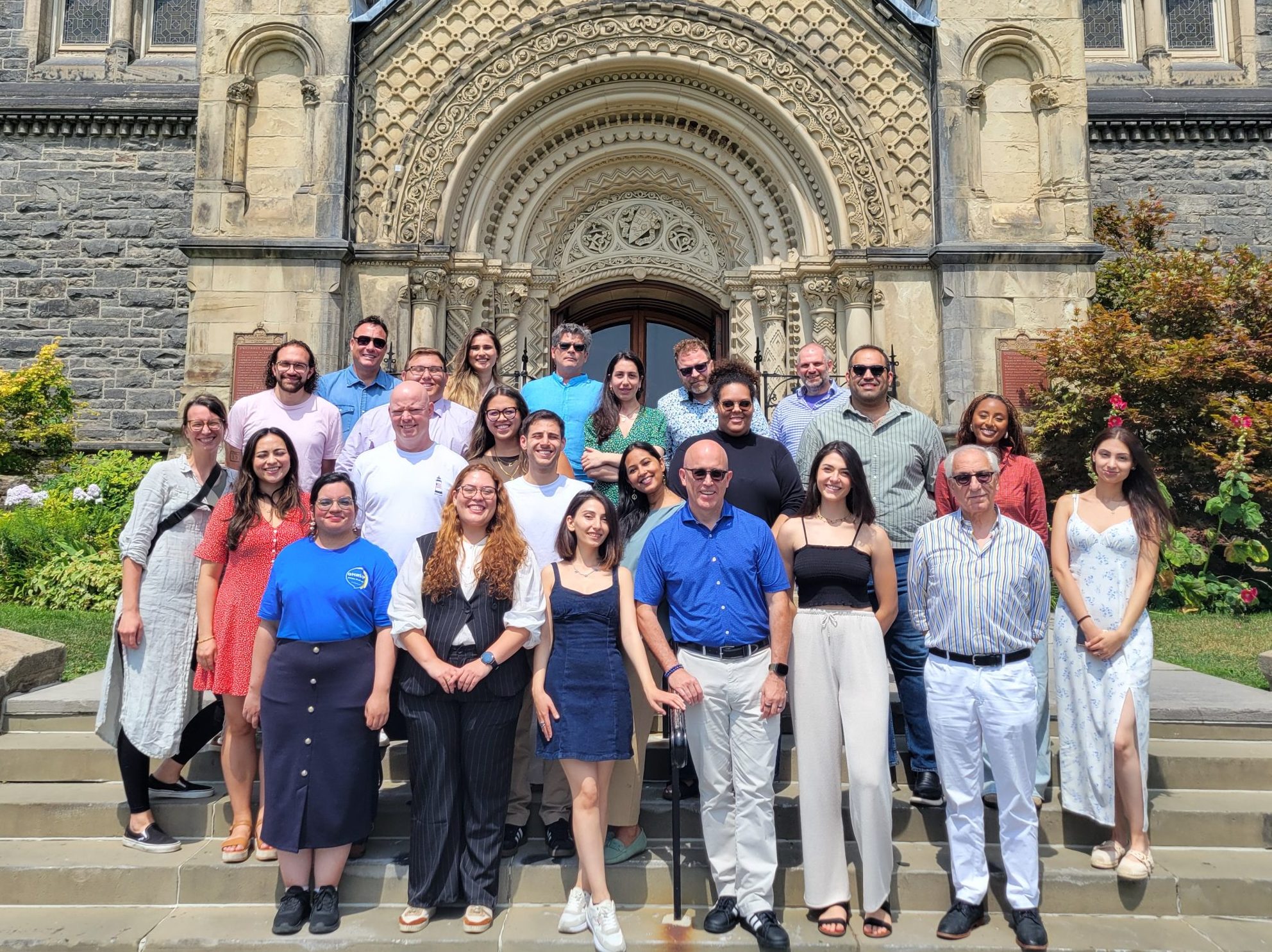
Pictured above is the GHRUP Class of 2025 with supporting Zoryan officials.
August 15, 2025, TORONTO, ON – The Zoryan Institute concluded its 2025 Genocide and Human Rights University Program (GHRUP) on August 8th at the University of Toronto. The 2025 program brought together leading scholars and graduate students from across 11 countries, spanning Latin America, Europe, and West Asia, to examine genocide and human rights through a rigorous, comparative and interdisciplinary lens.
The program delivered an intensive two-week 65-hour-long curriculum guided by Program Director Joyce Apsel of New York University and directed by Professor Alex Alvarez from Northern Arizona University, engaging students with foundational and emerging themes in international law, taught by Dr. William Schabas, transitional justice, gendered violence, taught by Dr. Jennie Burnet, and the psychology of genocide, taught by Dr. James Waller, just to name a few.
Participants explored and applied these concepts to an array of case studies, ranging from the Armenian Genocide, taught by Dr. Suren Manukyan, the Holocaust, taught by Dr. Barry Trachtenberg, and Indigenous genocide in North America, taught by Dr. Lorena Fonatine, to contemporary issues of colonial violence, human rights violations, and artificial intelligence globally.
Course Director, Prof. Alvarez, had the following to share about directing the course:
“It was a wonderful experience to work intensively with such passionate and committed young scholars, teachers, and practitioners from all over the world. Their work is needed now more than ever, and it was a personal privilege to have the opportunity to assist the Zoryan Institute in organizing and delivering one of the most powerful and transformative genocide and human rights programs I have ever come across.”
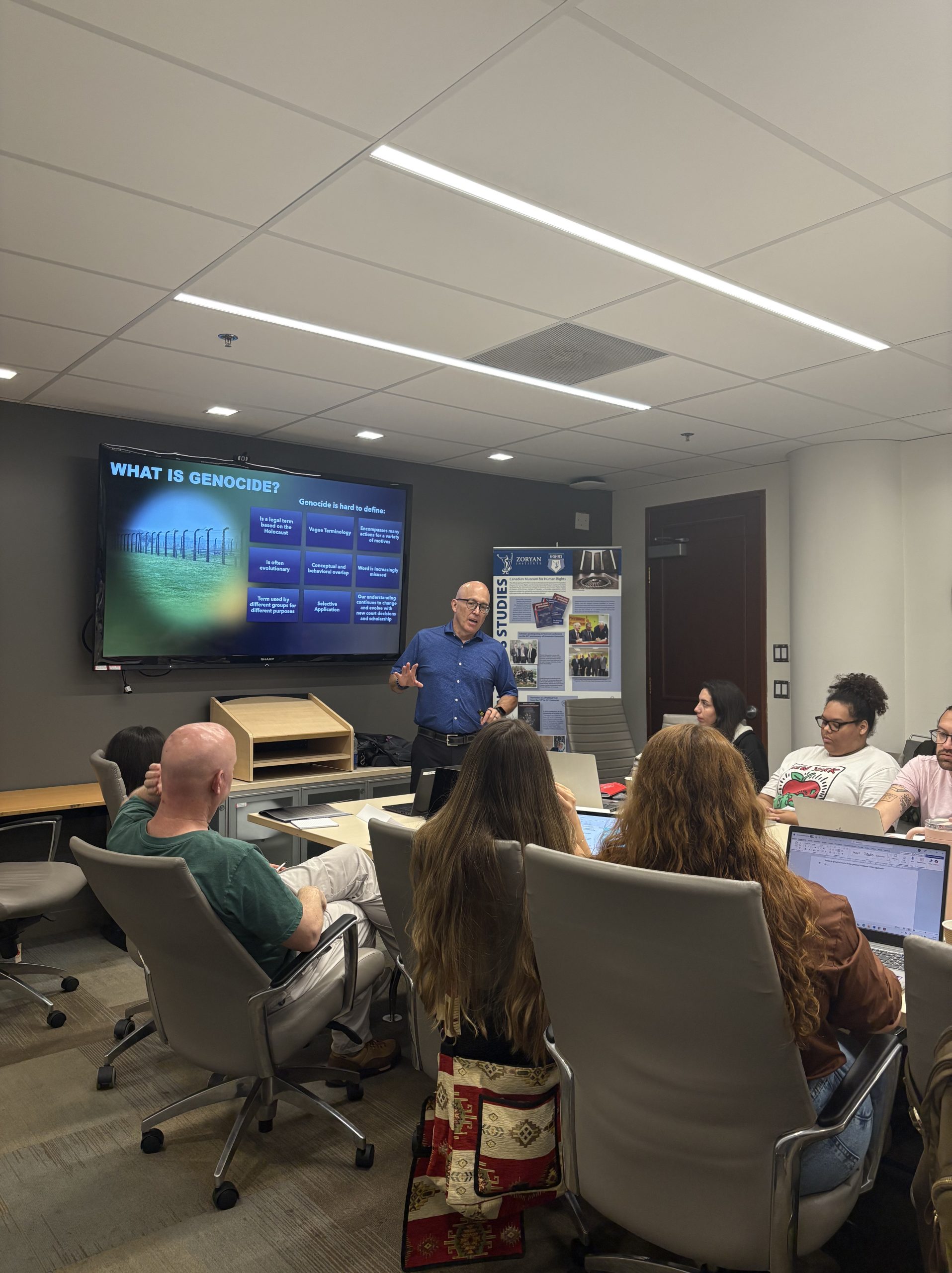
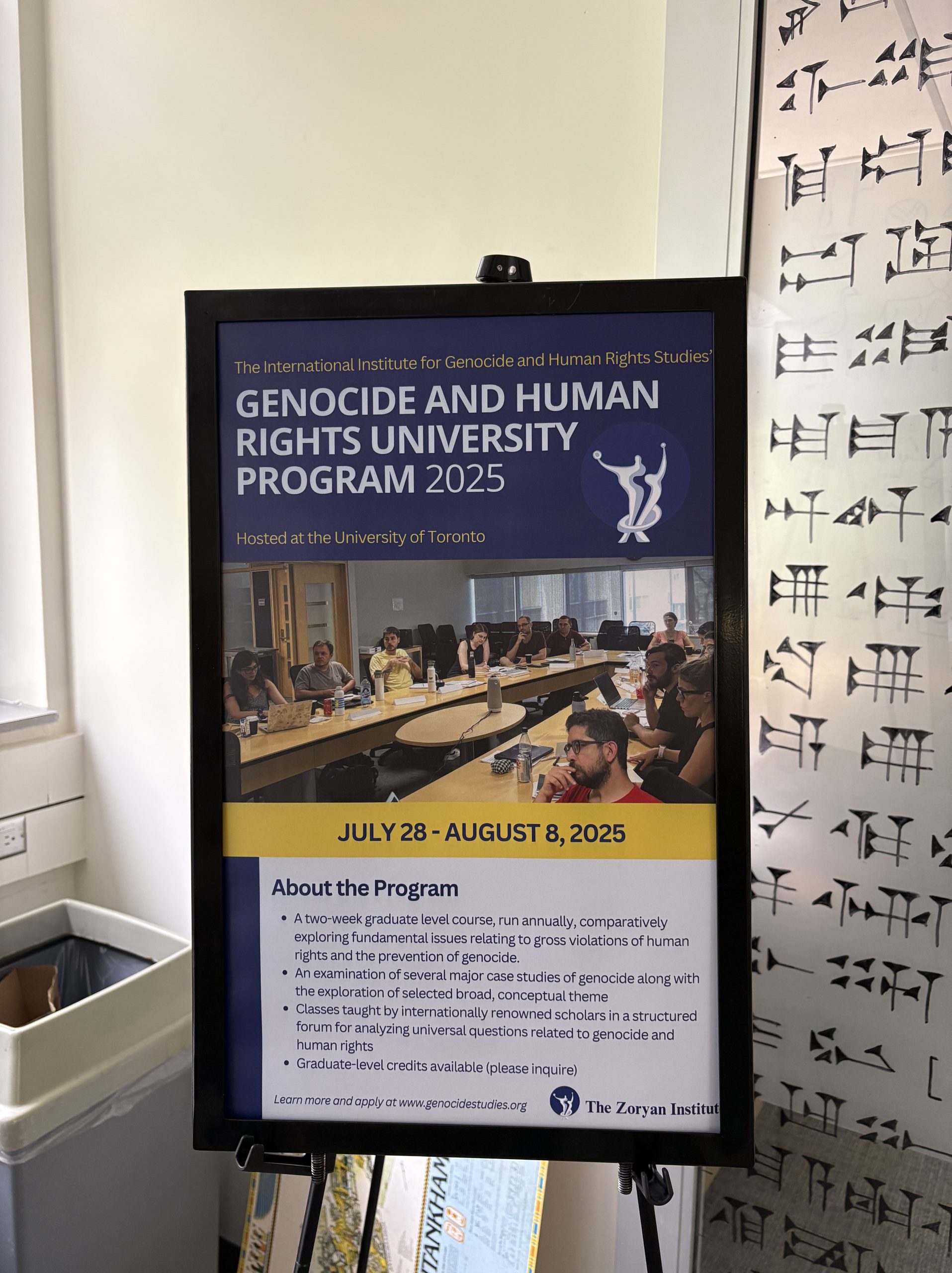
(Left) Prof. Alvaraez, lecturing during Unit 2: Introduction to Genocide; (Right) The official GHRUP poster at UofT
The program’s curriculum also saw a new addition this year, led by Dr. Petra Molnar, who taught the final unit, “Artificial Intelligence and Human Rights.” Prof. Molnar’s expertise brought a timely and critical perspective to the course, exploring the complex intersections between emerging technologies, surveillance, migration, and human rights. The unit left participants grappling with pressing questions about the future of human rights in an increasingly digital world.
A Special Thank You to Our Major Donors
Armenian General Benevolent Union (AGBU)
Armenian Relief Society (ARS)
Diran Avedian
The Babayan Foundation
Byron Hill Corp, Canada
Dr. Adrien Zakar, Department of Near and Middle Eastern Civilization
Armen and Azniv Goenjian
The Gilmore Foundation
Diana Hadjetian
Hamazkayin Armenian Educational and Cultural Society
The History Department at the University of Toronto
KRG Children’s Foundation governed by the Baboujian Family
In addition to contributions from several individuals not listed due to space limitations.
As the global landscape continues to evolve, the GHRUP remains committed to equipping future scholars, educators, legal experts, and activists with the tools they need to understand and respond to the most pressing issues of our time. The Zoryan Institute acknowledges that the success of this program would not have been possible without participating faculty members, students, community supporters and donors. It’s been another inspiring year of the GHRUP, one that’s now proudly in the books!
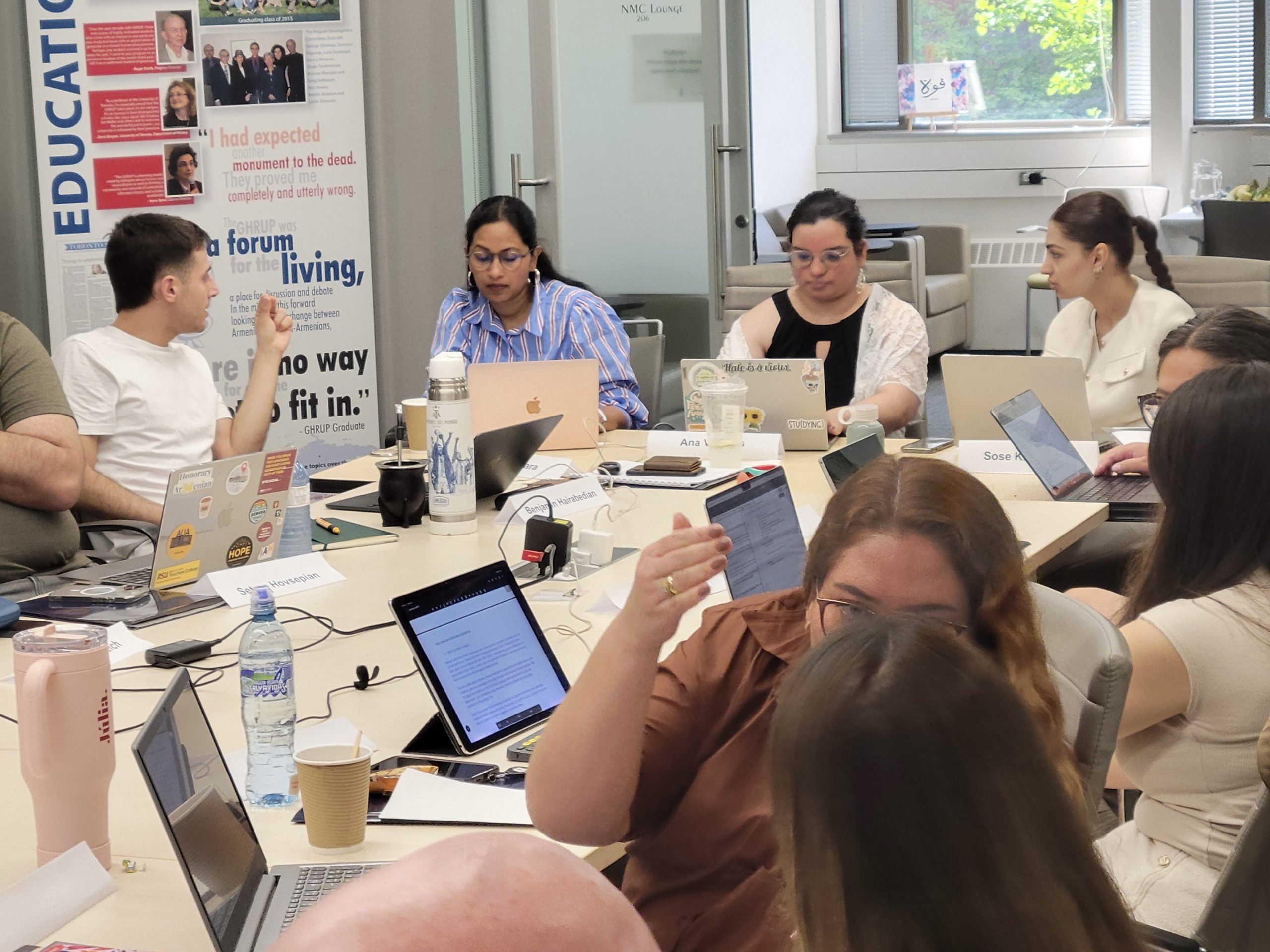
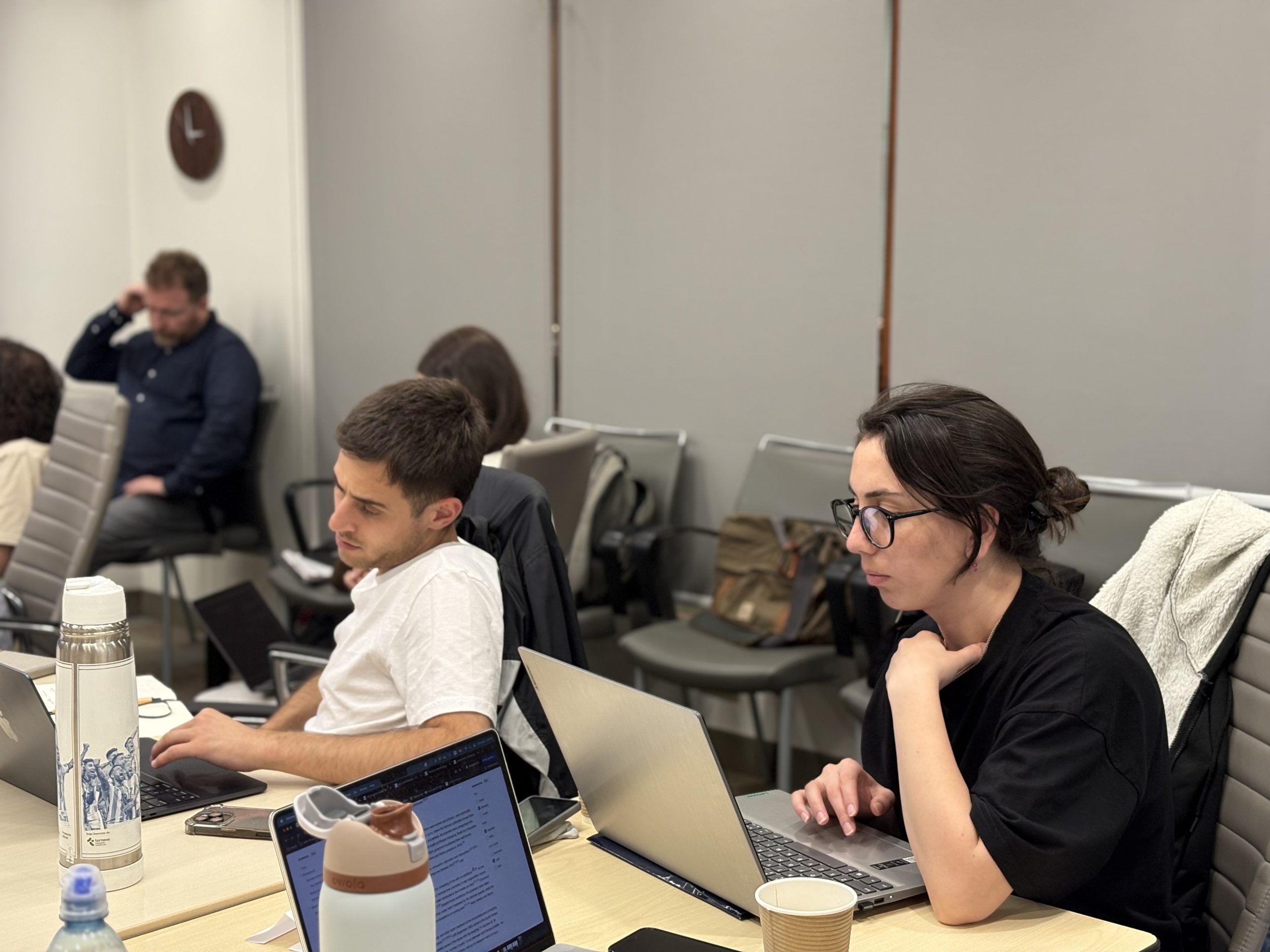
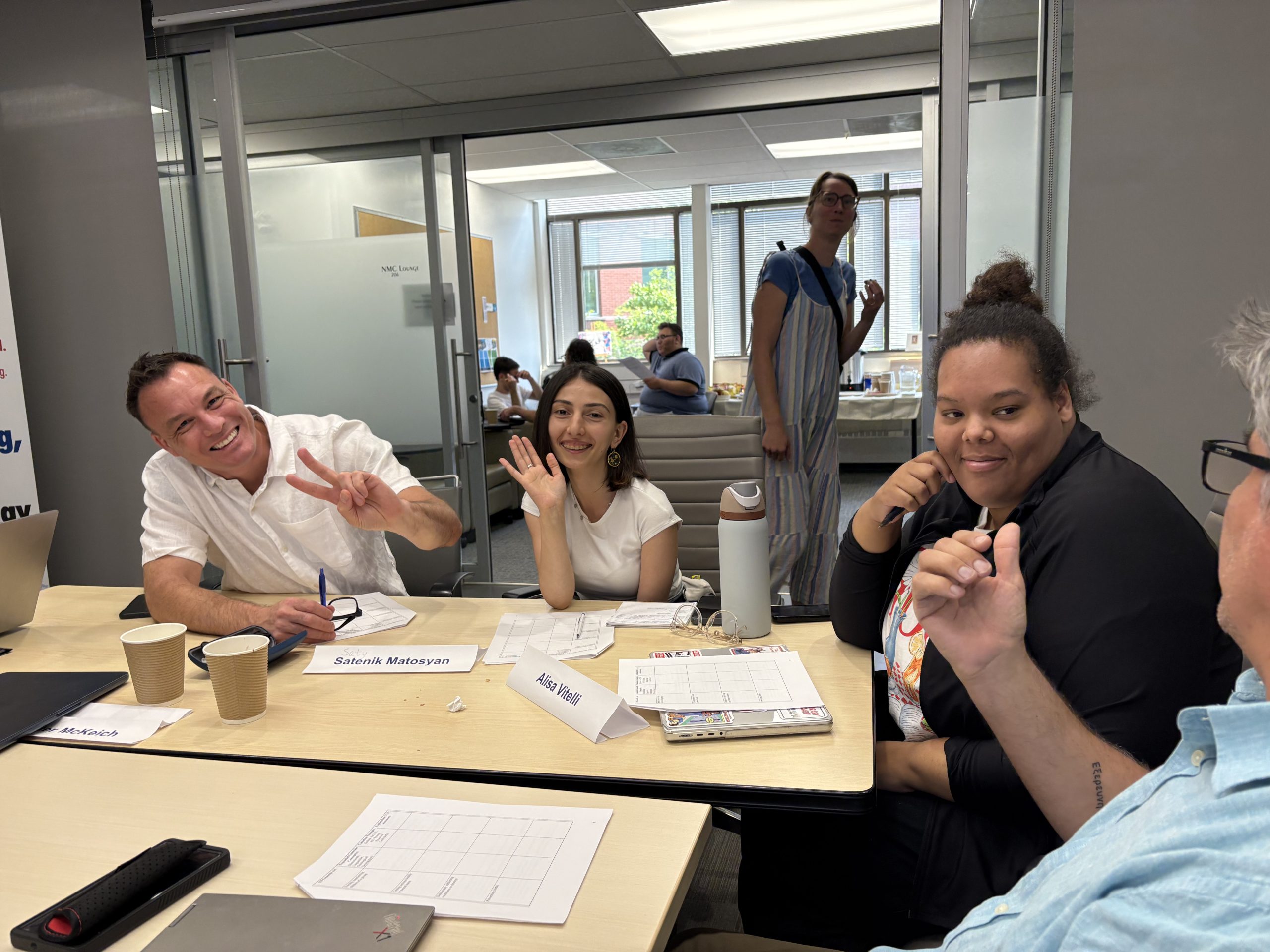
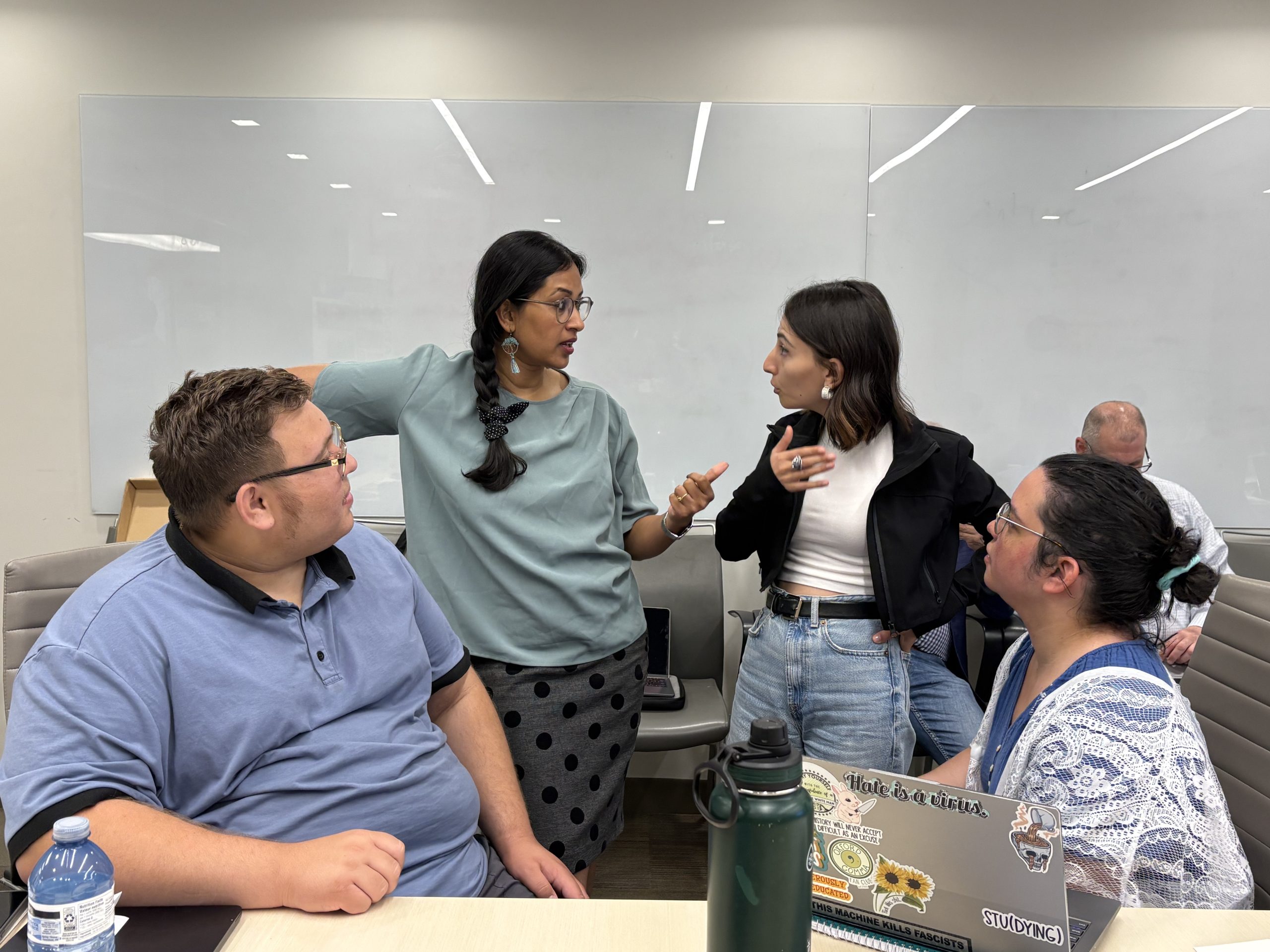
Scenes from the GHRUP Classroom located in the Department of Near and Middle Eastern Civilizations at UofT.
After two weeks of seminars and collaborative discussions, each graduate student presented a culminating project that reflected their research interests and incorporated insights gained from the program. This classroom environment fostered a strong sense of community among participants, one that extended beyond academic exchange. For many like Nitza Cabral from Royal Holloway at the University of London, the experience was as personally meaningful as it was intellectually engaging:
“In this field it’s easy to feel alone and feel like the issues we’re dealing with are much greater than ourselves, and the work can be futile at times, but then to come into this space where there are so many people from different parts of the world essentially working towards the same goal in a variety of ways was so enriching.”
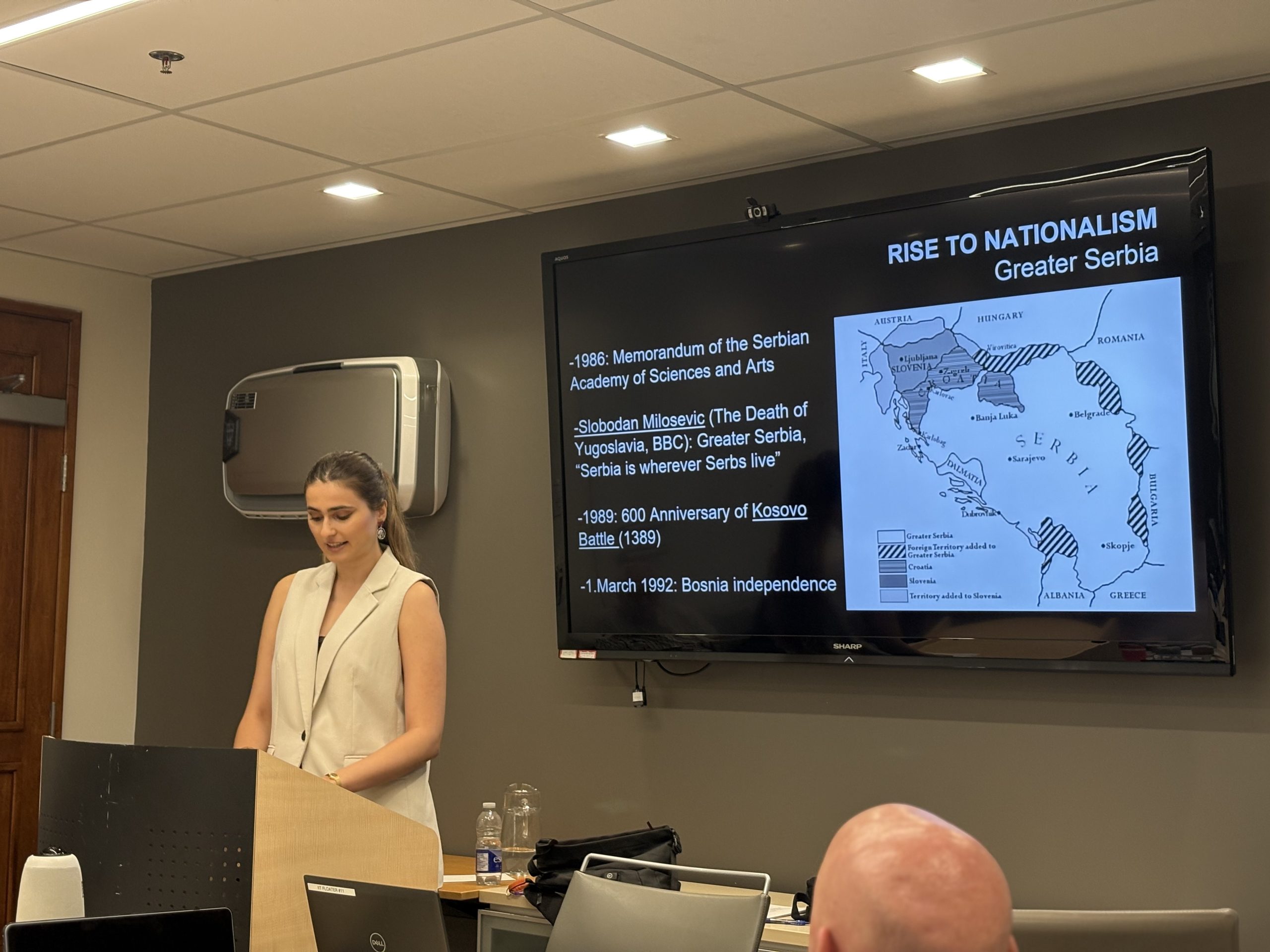
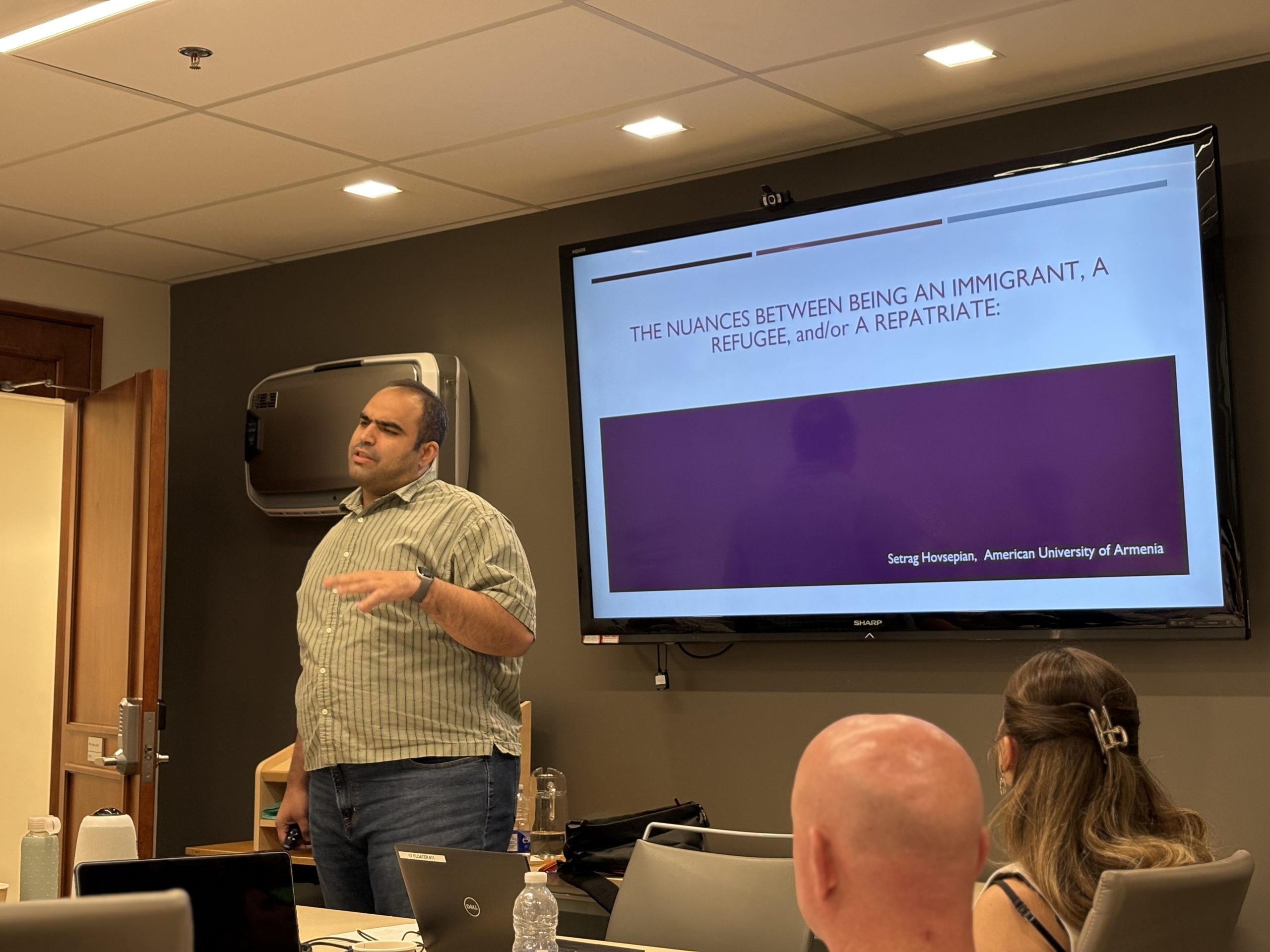
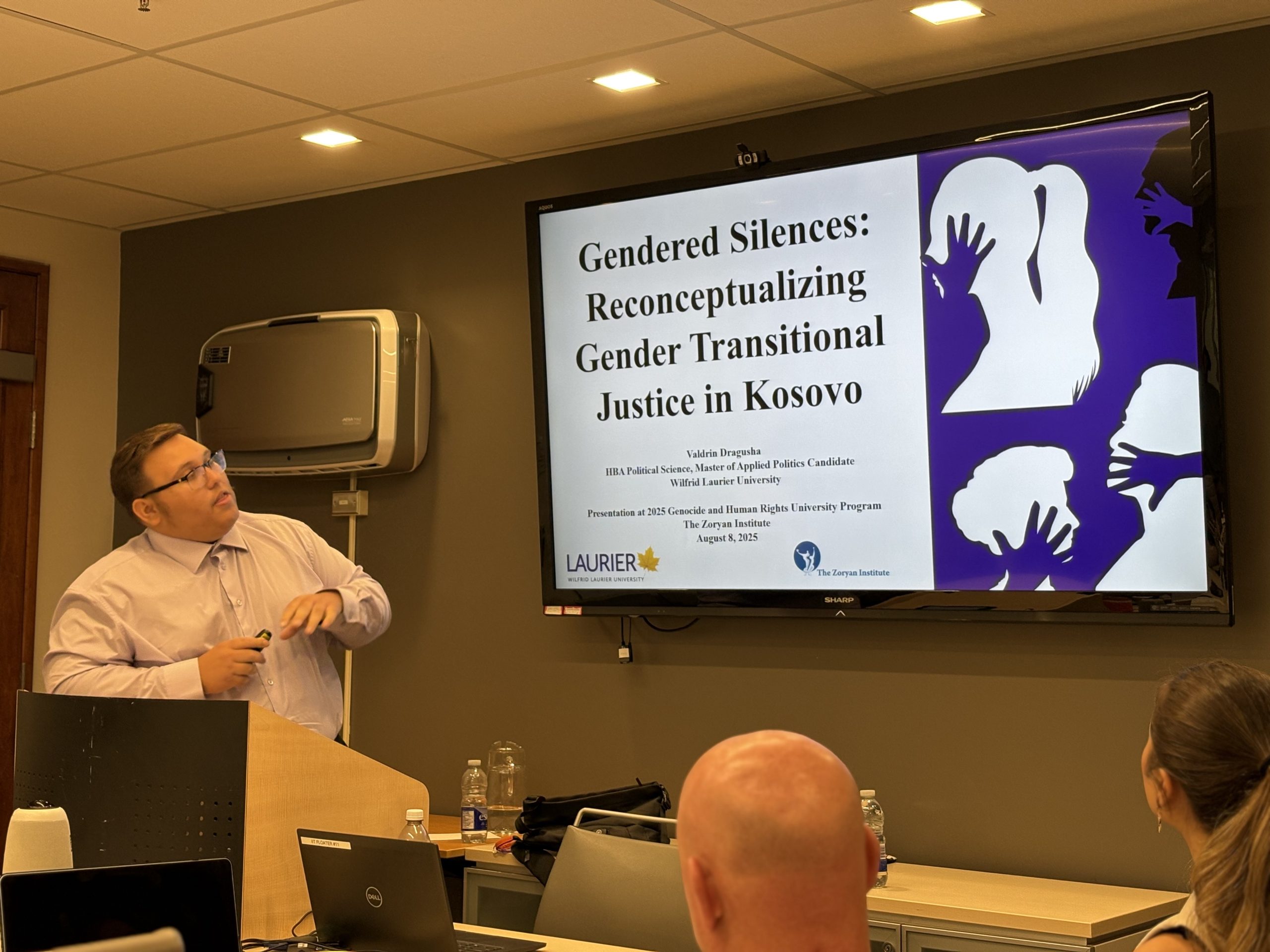
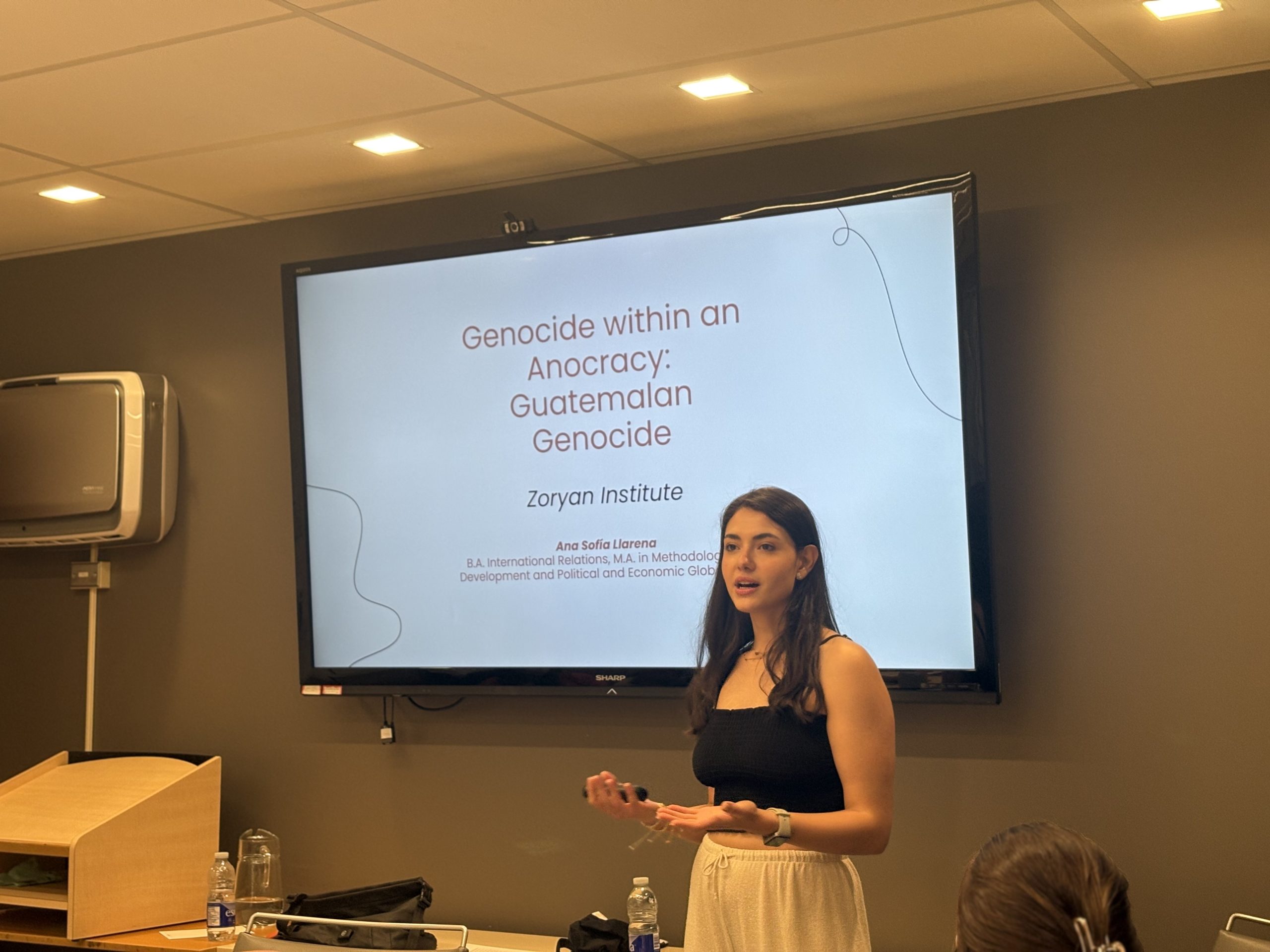
Pictured above are students presenting their final research projects to their peers on the final day of the program.
For more information on the Genocide and Human Rights University Program, please visit www.genocidestudies.org/ghrup.
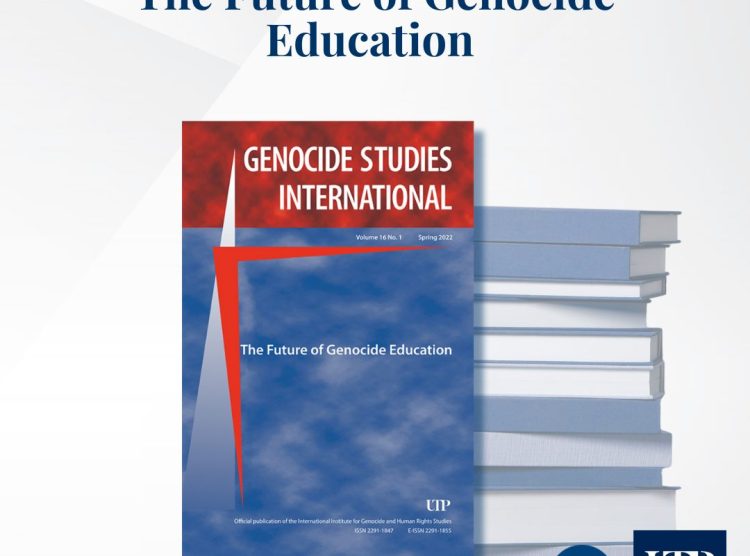
20 Aug 2025
Latest Issue of Genocide Studies International Now Available: “The Future of Genocide Education”
Read More
11 Jul 2025
Academic Journal, Genocide Studies International, Expands its Reach with New Podcast Partnership
Read More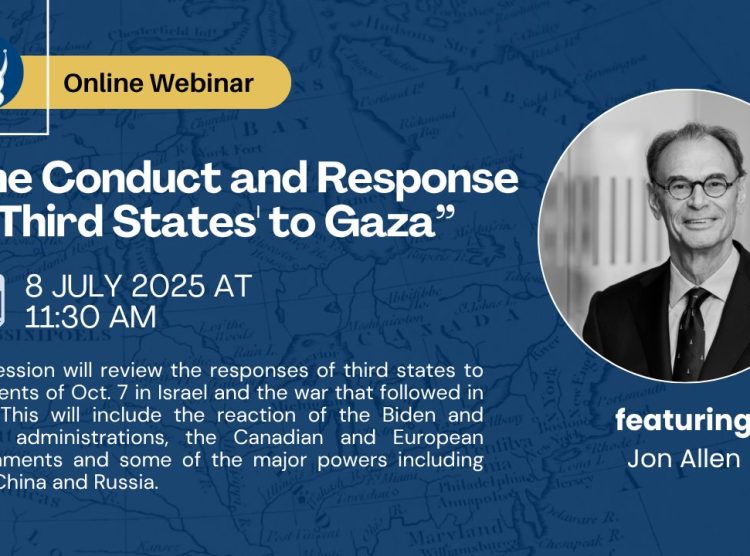
09 Jul 2025
“The Conduct and Response of ‘Third States’ to Gaza” with Jon Allen – Recording Now Available
Read More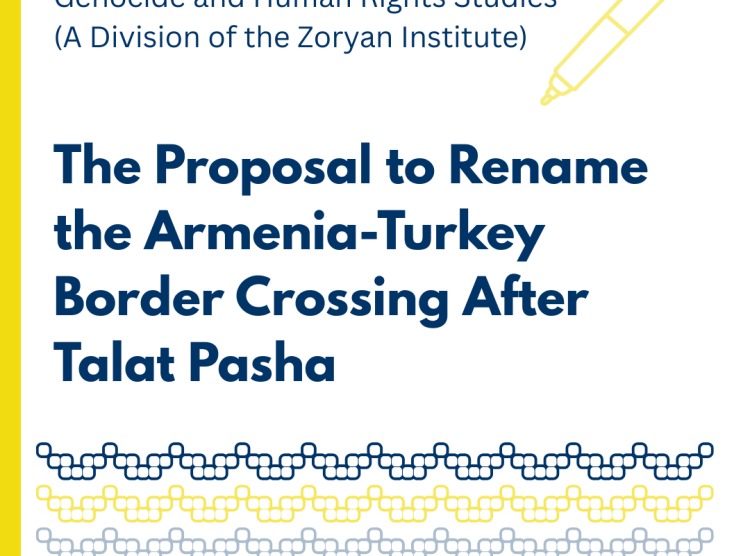
03 Jul 2025
Open Letter On the Proposal to Rename the Armenia-Turkey Border Crossing After Talat Pasha
Read More